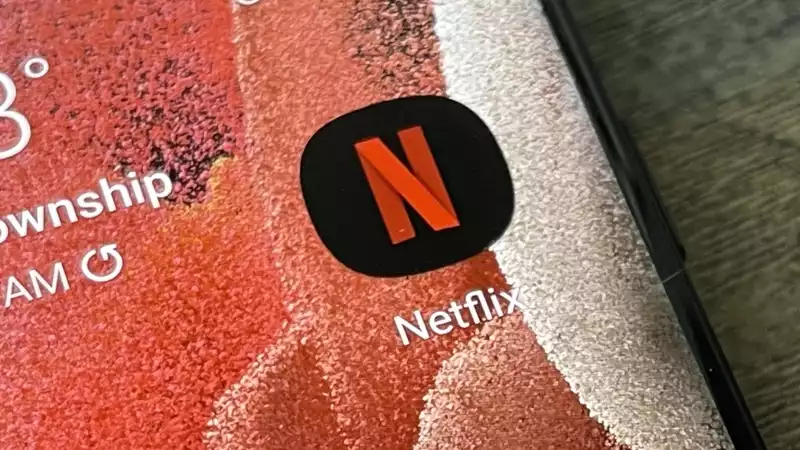There have been recent reports that Netflix is cracking down on users who share accounts. The company is testing a tool to verify that users belong to the same household, and has proposed sending an authentication code to verify that the user lives with the account holder.
However, taking a tougher stance against account sharing would not be advantageous for Netflix. If anything, this would also do nothing more than frustrate active subscribers.
Not surprisingly, this is also being used as a way to encourage people to open Netflix accounts. The streaming service has gone so far as to offer a free 30-day trial, which Netflix stopped offering in the US last October.
Account sharing has long been considered an advantage of streaming; many services, including Netflix, offer individual user profiles and the ability to use multiple devices simultaneously. They also allow users to split the cost among friends and family, which can soften the blow of having to pay an extra $1 or $2 per month, since Netflix prices are rising fairly regularly.
Indeed, in 2016, Netflix co-CEO Reed Hastings said that account sharing was "a positive thing." However, his comments seemed to focus on the fact that account sharing is a great marketing tool. This is because the availability of another person's account makes it more likely that person will subscribe to Netflix themselves. The company is clearly beginning to take more aggressive measures to accelerate that process.
Account sharing is strictly against Netflix's Terms of Service, which states in section 4.2 that "The Netflix Service and content viewed through the Service are for your personal, non-commercial use only and may not be shared with individuals outside your household You may not share it with individuals outside of your household."
But did anyone actually read the Terms of Service all the way through? We are all guilty of agreeing to the Terms of Use without even pretending to read them. Besides, who has time to read 2,500+ words of legal jargon when they just want to sit down and watch "The Crown"?
It is not certain whether account sharing can encourage people to sign up for Netflix for the privilege of using their accounts. However, aggressively targeting users who share passwords is not going to help Netflix's reputation, especially after nearly a decade of tolerating it.
We have seen the company make unpopular decisions over the years. Cracking down on VPN users who can watch content from other countries, eliminating the 30-day free trial, and almost constant price increases are just a few of them. Not to mention Netflix's tendency to cancel great shows after their second or third season.
There is no scenario in which taking an aggressive stance against account sharing will work out well for Netflix; the reasons Netflix makes such decisions are obvious, and the words begin with a "D" and end with "Ollars". Programs are cancelled because they don't attract subscribers. Prices go up because subscription fees are the only way to make money; VPN use is cracked down on because rights holders don't want content from regions where Netflix does not have the air rights to be seen on Netflix.
The same goes for account sharing. It is against the rules, and obviously sharing an account with someone outside the household would theoretically affect Netflix's bottom line. Assuming that everyone who shares an account pays for their own subscription. Some do, some don't. We do not know how such a situation would play out.
Netflix says it is just testing the system. In any case, not yet. This is because the system already shows some inherent flaws, even for people living in the same household.
Having been a "primary" on a Netflix shared account, I know that each account is tied to only one person's details. Suppose there is a false authorization and the teenager must prove that he/she is authorized to use that particular Netflix account. The authorization code would be sent to the parent, who would then have to pass it on to the child.
That's fine if the parent is within arm's reach and can do it quickly, but what if they can't, and suddenly account sharing, which is perfectly fine under Netflix's rules, is being punished? [Of course, we don't know how Netflix is going to detect account sharing. We have already speculated that it might be a tool that flags account users' IP addresses if they are too heterogeneous. But we don't know for sure, and we don't know what criteria Netflix uses to judge users.
As with Netflix's viewing metrics, everything is a bit mysterious and hush-hush at this point.
I understand why Netflix is doing this, but that doesn't mean I have to like it. Especially given this sudden shift in priorities. We can only assume that Netflix realized how many people were doing account sharing and got scared, or that it got so big that people thought they would just end up paying for their own accounts when prompted.
The prompt might work, and it would benefit Netflix. But what benefit will it bring to Netflix users? If this new system works correctly, the next price increase may be postponed for a few months. But it is not likely to happen for a while.
For now, cracking down on account sharing is just a surefire way to irritate customers. And when customers get too irritated, they jump ship. That's the last thing Netflix wants.
.









Comments